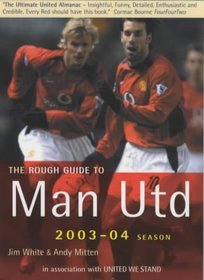Search -
The Rough Guide to Manchester United 3 (Rough Guide Sports/Pop Culture)
The Rough Guide to Manchester United 3 - Rough Guide Sports/Pop Culture
Author:
MAN UTD A Fan's Handbook in association with UNITED WE STAND INTRODUCTION Thank goodness for Cathy Ferguson. It was the Boss's wife, so it seems, who was responsible for the best piece of news for United fans in the 2001-02 season: Sir Alex was staying on. As recently as Boxing Day, the United manager had been insisting he would retire at the... more »
Author:
MAN UTD A Fan's Handbook in association with UNITED WE STAND INTRODUCTION Thank goodness for Cathy Ferguson. It was the Boss's wife, so it seems, who was responsible for the best piece of news for United fans in the 2001-02 season: Sir Alex was staying on. As recently as Boxing Day, the United manager had been insisting he would retire at the... more »
ISBN-13: 9781843531210
ISBN-10: 1843531216
Publication Date: 2/16/2004
Pages: 400
Edition: 3rd
Rating: ?
ISBN-10: 1843531216
Publication Date: 2/16/2004
Pages: 400
Edition: 3rd
Rating: ?
0 stars, based on 0 rating
Genres:




